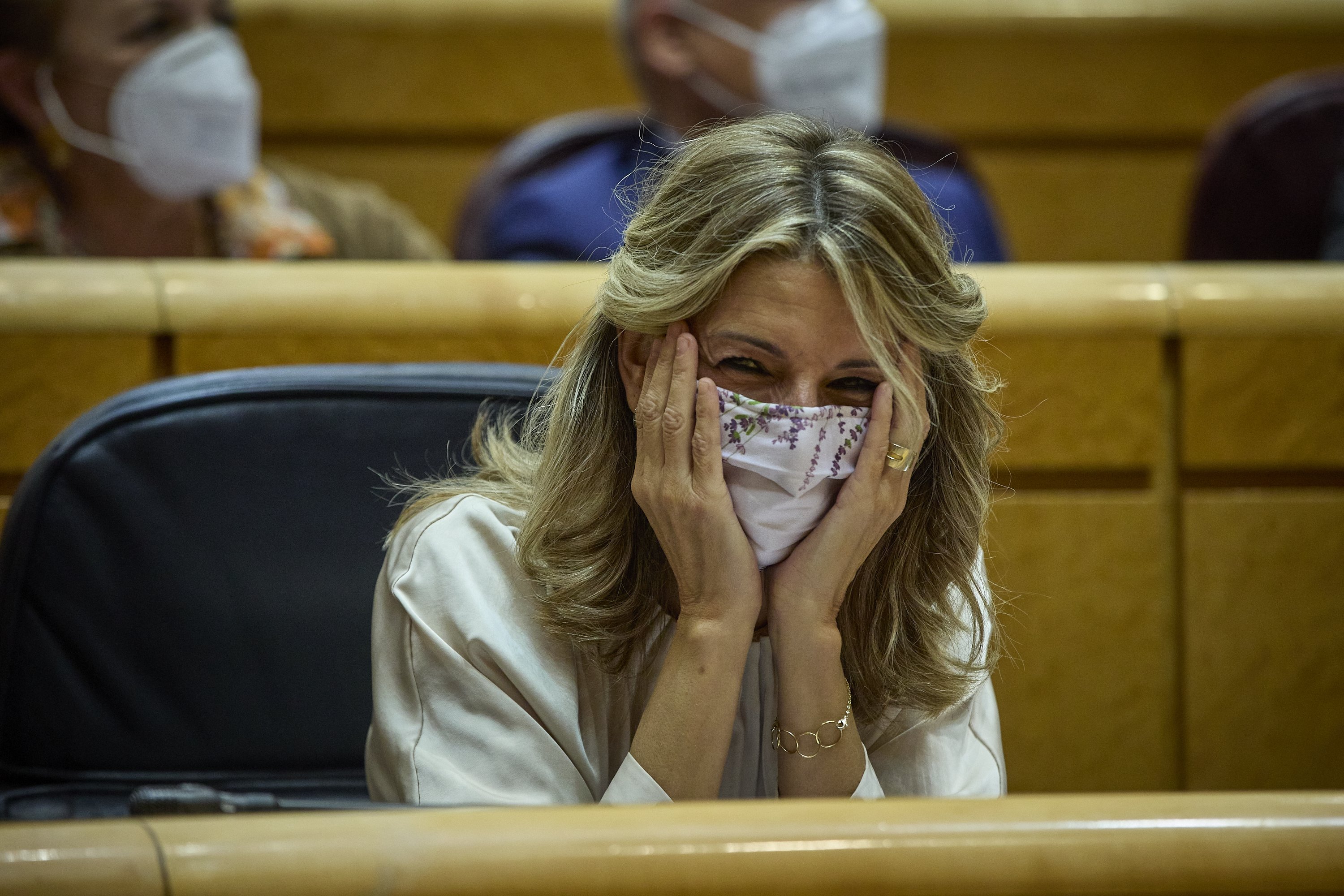Pedro Sánchez's former spin-doctor Iván Redondo went as far as to predict - after leaving his job - that Yolanda Díaz could be the next prime minister of Spain. The current second deputy PM and new star of the alternative left has launched a new political platform, but her numbers are still far from what she would need to bring about Redondo's prophecy. Nevertheless, there are statistics that come out in her favour, such as those of the latest poll by Spain's public polling agency, the CIS. The Socialists (PSOE) continue to lead, but they are slipping back, while the Unidas Podemos (UP) space is eating away at its Spanish government partners. Díaz also gets a better rating than her cabinet boss Pedro Sánchez. On the other side of the spectrum, the part of the right situated beyond the Popular Party (PP) is also growing.
According to this poll, if a Spanish general election were held today, Pedro Sánchez's PSOE would win it again solidly, with 27.6% of the vote. But it would drop 0.9% from the last CIS poll, losing two percent in two months. Pablo Casado's PP would also lose ground, down 1.2% to 20.9% of the vote. The distance between the two would increase, but only by 0.3%, with the Socialists ahead by 6.7%.
But there is polarization: the parties that would scoop up these votes would be the spaces to the left of the PSOE and to the right of the PP. The far-right Vox would continue to be the third force, 0.5% higher than in October, at 14.3%. For its part, Unidas Podemos and its associates around the Spanish state would rise by almost two percent, from 11.8% to 13.6% of votes. Adding on the totals for Más País and Compromís, which could join forces with UP if the proposed new left-wing platform materializes, would yield a total of 16.7%. In fifth place would be Ciudadanos (Cs), which drops three-tenths to 5.7%, although this is already more than what other recent polls predict for them.
Dividing the results into blocs, then, the forces of the left would go up slightly. The Spanish government - PSOE and Unidas Podemos - would take 41.2% of the vote. This percentage is almost one point higher than in the October poll, although it only takes into account the two governing parties. Meanwhile, the sum of the PP, Vox and Cs would fall to 40.9%, a 0.4% drop. As in September, the right-wing trio don't reach the total vote of the two partners in the Moncloa government palace.
As for the Catalan pro-independence parties, they remain in the same order, and the variations in total votes are insubstantial. ERC remains the leading pro-independence force in Congress, with a voting intention of 2.6% (over the Spanish state as a whole), 0.5% down. Junts, which would get 1.5% of the vote, would fall by a tenth of a percent. The same tenth that the CUP would rise, to exactly 1%. And 0.1% rises would also be noted by both the pro-Basque parties, the PNV (1.4%) and EH Bildu (0.8%).
Millor nota per a Díaz
As for the ratings of political leaders, as usual, none of the main Spanish party heads get a pass mark from the voters who responded to the poll. But the same curious circumstance noted in previous CIS surveys is again reproduced: the second deputy PM, Yolanda Díaz, with 4.76 out of 10, comes in ahead of the Spanish prime minister, Pedro Sánchez, who gets a score of 4.45. Behind them would be Más País's Íñigo Errejón (4.13), Inés Arrimadas of Cs (3.61), the PP's Pablo Casado (3.41) and, in last place, Vox leader Santiago Abascal (2.79).
On the other hand, when respondents are asked who they would prefer to be Spanish prime minister at the moment, Pedro Sánchez is clearly still in the lead with 21.1%. Behind - and advancing - is Yolanda Díaz, who reaches 15.8%. And in third place is Pablo Casado, with 10.7% of preferences.

